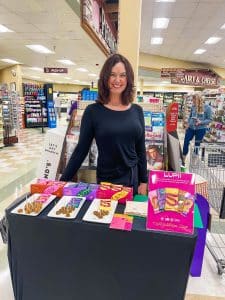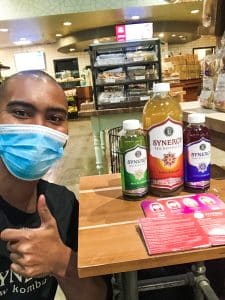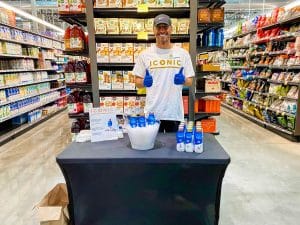Part of almost every CPG’s go-to-market strategy includes some sort of field marketing, most often product sampling at in-store demos. It’s a great way to show the retailer you are invested in making sure your product makes it at their store, and unlike many kinds of experiential marketing, demos provide at least a part of the ROI instantly.

Top 5 Tips for a Successful Demo Program
1. Select the right stores.
If there aren’t people in the store, or if they aren’t the right people for your product, you’re going to have a really tough time meeting your sales goals. The 80/20 rule works well here. If you’re not familiar, the 80/20 rule says you make 80% of your sales at the top 20% of your accounts. When we are working with brands, we suggest activating at the top 20% of stores for any given retailer.
Then, we usually cut the outliers that would require just one rep/store. Reps with more skin in the game usually outsell the ones with only one or two demos per month. They are also less likely to leave the program for better opportunities.

Passion is priority number one when we’re looking for demo reps for our product sampling programs. Passion often leads to sales in a very organic way. But passion alone is not enough. You also need someone who is outgoing, sales focused, and reliable. The most passionate person won’t sell a single unit if they don’t make it to their shift.
You also need to think about personality. Startup brands often use internal staff for their retail demos, but the truth is, sometimes your sales manager or accountant isn’t your best brand ambassador. Make sure to evaluate how they’d be in the demo rep role before booking them for a demo.
3. Have a clean set up.
How you set up your demo table says something about your brand. Your demo table shouldn’t be cluttered with every piece of marketing material you have in your warehouse. A customer should be able to tell what you’re sampling at a glance, which is often all you get at a retail demo! And, of course, avoid crumbs or spilled beverages. A clean table with clear brand messaging is inviting to the consumer. If you’re looking for more info on this one, check out our blog on demo table best practices.

Have you ever been to the Cheesecake Factory, or another restaurant with a 300-page menu? It’s not a great experience, right? I don’t really want to invest that much time figuring out what to eat for dinner. Don’t create this experience for your customers. Offer them one item, with up to 4 flavors. If they have to choose between a protein powder, a pre-workout, a nutrition bar, etc., they won’t know where to begin. It’s better to narrow your scope and ensure that the customer walks away understanding your key points of differentiation for the product you are sampling than a muddled understanding of your entire line.
5. Keep everyone in the loop…constantly.
Most field marketing managers are good about confirming the date/time with the retailer and getting their reps booked. And then they think everything is buttoned up. If that’s you, you’re likely going to have some “womp, womp” moments in your future. After booking your rep and getting a date with the store, you’ll also want to keep your sales rep or broker in the loop so they can ensure the store purchases extra product for the demo. You’ll also want to reach back out to the store a week or so before the demo reminding them about your product needs for the upcoming event. Lastly, it’s best if you can also reach out to your rep the week of the demo to ensure their supplies arrived and give them a chance to let you know if anything is off track. The communication piece is a critical part of running a successful product sampling program.
If you feel like this is overwhelming, we feel you. It’s a lot. But trust us, the real demo magic happens before your demo rep even walks through the door. If you can incorporate the tips above, you’ll be well on your way to a successful retail demo program.
Have you put together your own demo program? How did it go? Share your key learnings below!




